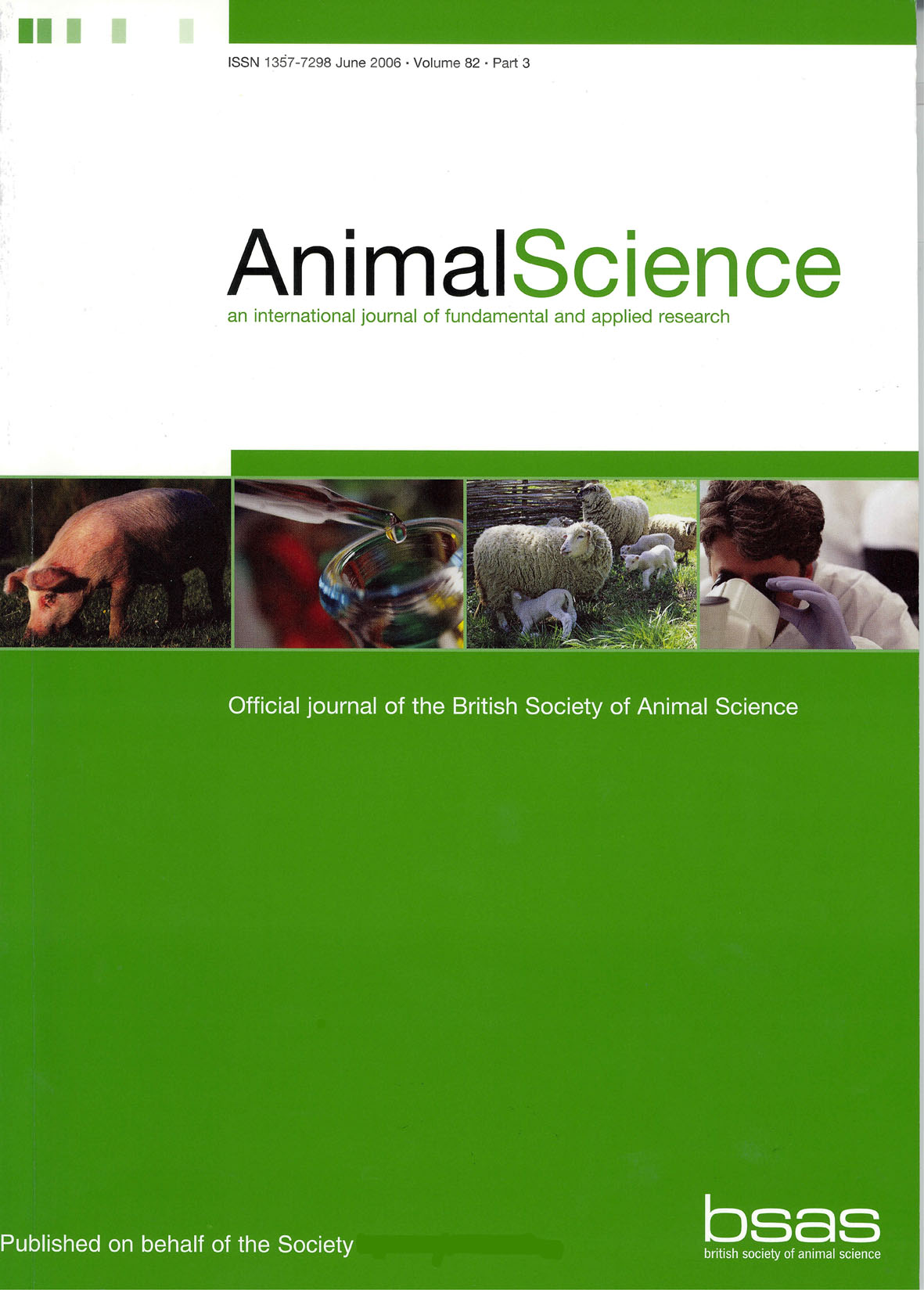Article contents
Effectiveness of sequential selection in pig improvement
Published online by Cambridge University Press: 02 September 2010
Abstract
The effect on genetic improvement of a policy of sequential selection, in which breeding animals are retained for differing times, is investigated for a closed herd of pigs. Selection is practised for traits of the growing animal, either on phenotype or on predicted breeding value with account taken of parental age.
The following scheme gives near to maximum response over a wide range of values of parameters such as litter size, mating ratio and farrowing interval and of heritability. One out of every three or four females should be retained fora second litter and with continuous use of males about three out of every seven males should be retained after 3 months of use for a further 3 months. Such a scheme gives an improvement of only up to 3% over a procedure where all females are kept for two litters and all boars for 6 months, and progeny are selected without regard to parental age. The advantage of sequential selection becomes greater if sows are kept for more litters.
- Type
- Research Article
- Information
- Copyright
- Copyright © British Society of Animal Science 1978
References
REFERENCES
- 6
- Cited by


